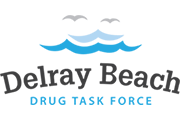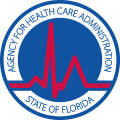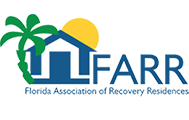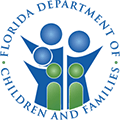At Wellness Resource Center, we have significant experience helping individuals who have engaged in polysubstance abuse, and we have developed considerable insights into the optimal means of helping these individuals overcome their dependence upon multiple substances while also making the lifestyle changes that will support successful long-term recovery.
Learn About Polysubstance Abuse Treatment
Learn about polysubstance abuse treatment at Wellness Resource Center in Boca Raton, FL
The day a person decides to enter rehab at Wellness Resource Center is the day that he or she begins to regain control over his or her life and starts to experience the hope and promise of a healthier tomorrow, free from the chains of polysubstance abuse and addiction.
Polysubstance abuse is a term that describes the misuse of multiple substances. The separate diagnosis of polysubstance dependence was not included in the fifth edition of the Diagnostic and Statistical Manual of Mental Disorders (DSM-5); however, previous versions of the DSM defined polysubstance dependence as involving at least three substances. Polysubstance abuse can involve any combination of drugs; however, among individuals who engage in polysubstance abuse, alcohol is the most commonly abused drug. Other substances that are often included in polysubstance abuse include marijuana, cocaine, heroin, hallucinogens, benzodiazepines, and prescription medications.
Any time that a person engages in substance abuse, he or she may be at increased risk for myriad negative outcomes. When a person abuses multiple substances, that risk is increased exponentially. Dependence, overdose, injury, permanent health damage, and death are all possible outcomes when a person engages in polysubstance abuse. Becoming dependent upon more than one substance, which now falls under the DSM-5 category of substance use disorders, is a painful experience that can be extremely difficult to overcome without proper professional treatment from a rehab center.
Helping a Loved One
Helping a Loved One or Family Member Enter Polysubstance Abuse Rehab
Substance abuse is an unfortunately prevalent problem, but when you discover that someone you care about has been engaging in polysubstance abuse, you may react with a combination of fear, frustration, and confusion. While these are perfectly natural and understandable responses, it is essential that you do not allow these emotions to prevent you from helping your loved one. Professional help will likely be necessary, but you have an essential role to play as well. Please consider the following:
- The first step in solving almost every problem is ensuring that you understand the nature of the challenge. Educate yourself about the disease of addiction, and learn about the unique ways that polysubstance abuse can impact an individual. If you know what drugs your loved one has been abusing, research how they can affect a person, both individually and when abused together.
- Be sure to consult reliable sources. If you can, speak to a medical professional, addiction treatment provider, or substance abuse support organization. When using the Internet, focus on reputable websites such as those maintained by the Substance Abuse and Mental Health Services Administration (SAMHSA), National Institute on Drug Abuse (NIDA), and similar professional or governmental organizations.
- Resist the urge to judge, blame, or otherwise criticize. Your loved one’s struggle with polysubstance abuse does not mean that he or she has poor self-discipline or lacks character. Addiction is a chronic, progressive, and potentially life-threatening disease.
- Involve other friends and family members, if possible. They can help with research, can be additional sources of moral support, and can help ensure the safety of your loved one until you are able to get him or her into a rehab center.
- Prepare yourself for an extended effort. Polysubstance abuse can be a complex behavior to treat, and the path of recovery is a long one. Do not expect quick results, and do not be discouraged by the setbacks that your loved one is likely to experience along the way.
Most importantly, remember that your loved one can benefit from both your moral support and your tangible actions. Making appointments, providing transportation, arranging for childcare, and cooking healthy meals can help your loved one focus on the hard work of getting healthy, and can make all the difference in the world. This level of support will be beneficial after he or she completes rehab, too. Ongoing support can make a world of difference when an individual has completed treatment and is working to maintain his or her recovery while re-integrating into his or her home, workplace, and/or school.
Why Consider Us?
Why Consider Polysubstance Abuse Treatment at Wellness Resource Center in Boca Raton, FL
Individuals who engage in polysubstance abuse put themselves at increased risk for several unpleasant results, including both immediate and long-term damage. The abuse of any drug, whether for purposes of self-medication or recreational intoxication, can expose individuals to a variety of physical, psychological, and social damage, including but not limited to overdose, injury from accidents due to impaired perception, cognitive deficits, diminished academic or occupational performance, and a host of other setbacks. When drugs are abused in combinations or in rapid succession, the danger can increase significantly, and can be difficult if not virtually impossible to identify until the damage has been done. Organ damage, brain damage, diminished immune system functioning, and exposure to blood-borne pathogens are just a few of the many health concerns that can result from polysubstance abuse. Individuals who become dependent upon multiple substances will begin to focus on their substance abuse to the detriment of their personal, occupational, and academic responsibilities. Without proper professional assistance, likely outcomes will include family discord, strained or ruined friendships or professional relationships, academic failure and expulsion, job loss and unemployment, financial difficulties, arrest and incarceration, and social withdrawal or ostracization. Yet all of these outcomes can be avoided, and much existing damage can begin to be healed, when an individual enters a comprehensive rehab center that is prepared to treat polysubstance abuse.
Types of Treatment
Types of Polysubstance Abuse Treatment Offered at Wellness Resource Center
At Wellness Resource Center, we are committed to ensuring that each person who chooses to heal with us receives the type and level of care that will best prepare him or her to achieve long-term recovery from a substance use disorder and any co-occurring conditions. Our client-focused integrative approach to treatment places a premium on providing comprehensive care that is customized to meet the unique physical, emotional, and psychological needs of each client.
Understanding that intensive, daylong treatment is just one step on the path of lifelong recovery, we work closely with each client to set short-term and long-term recovery goals, and then develop detailed rehab plans that will help them to achieve these objectives.
Rehab at Wellness Resource Center is a personalized, holistic experience that features a range of treatment activities and therapeutic interventions, each of which is provided by experienced and compassionate treatment professionals whose skills are surpassed only by their dedication to treating each client with dignity and respect.
During Phase I treatment, which is also referred to as the partial hospitalization program (PHP), clients participate in treatment-related activities Monday through Friday from 9 a.m. to 5 p.m., and benefit from round-the-clock supervision seven days a week. During this time, clients will reside in the housing provided on our campus, which is staff-supported 24/7. Depending upon each client’s goals, strengths, and needs, his or her rehab experience at our treatment center may include many of the following elements:
Medication management: Clients whose substance abuse or addiction is accompanied by a co-occurring mental health condition or conditions may benefit from the inclusion of psychotropic medications within their treatment plans. The incorporation of medication into a client’s treatment regimen will be determined by a psychiatrist based upon a personal review of his or her case. Clients whose treatment includes medication management will meet with a psychiatrist at least once each week throughout his or her time in treatment. Also, the program nurse, the client’s primary therapist, and attending behavioral health technicians will all be available to assist with medication monitoring.
Individual therapy: Individual therapy and effective therapist-client relationships are essential components of care at Wellness Resource Center. All clients participate in individual therapy sessions with their primary therapist a minimum of one time each week, with additional sessions scheduled when clinically appropriate. These one-on-one sessions are ideal opportunities for clients to discuss their progress, process successes or setbacks, and address any concerns that they may have about any aspect of their rehab experience.
Group therapy: Group therapy is the fundamental element of treatment at our rehab center, with clients participating in multiple groups each day, Monday through Friday. Among the more common groups offered at Wellness Resource Center are psychoeducational groups, gender-specific groups, process groups, age-specific groups, and experiential groups. Some of the many topics that will be addressed during these sessions may include the following:
- Body image
- Goal-setting
- Relapse prevention
- Coping skills
- Trauma
Family therapy: At Wellness Resource Center, clients and their family members may schedule family therapy sessions with either the client’s primary therapist or with our clinical director on an as-needed basis. In addition to in-person family therapy sessions, additional options for keeping families connected during rehab and for helping family members access the support they need include phone calls, conference calls, and written communication.
Experiential therapy: Experiential therapies are included into programming and are designed to provide clients with the opportunity to overcome challenges, express themselves artistically, interact with others, and otherwise engage in tangible experiences that emphasize holistic healing. The type and amount of experiential therapy that clients participate in at our rehab center varies depending upon their personalized treatment plans, and may include the following:
- Adventure activities
- Communication-based activities
- Equine therapy (on an ancillary extra cost basis)
- Labyrinth
- Psychodrama
- Social activities
- Teamwork activities
Family Program: Because the devastation of substance abuse and addiction is rarely limited to the afflicted individual, we are proud to offer a Family Program every other month. This program takes place on our campus in Boca Raton, FL, and features psychoeducation and process groups that are designed to help family members address their own needs as they prepare to support their loved one during the post-treatment phase of his or her recovery.
Clients who can benefit from step-down support after they have completed Phase I treatment for substance abuse and addiction at Wellness Resource Center may choose to enroll in Phase II care, which is an intensive outpatient program, or IOP. Phase II participants can attend part-time treatment and receive case management services while continuing to live in our client housing. After completing Phase II, clients who desire a transitional living environment with a semi-structured support system may choose to enroll in Phase III.
Among the many benefits of rehab at Wellness Resource Center is that we provide a seamlessly integrated spectrum of extended care services, all of which are provided by the same highly qualified members of our treatment teams. With no maximum limit on length of stay, Wellness Resource Center makes it possible for each client to receive a consistent continuum of care that is designed and delivered with the sole purpose of preparing him or her to successfully pursue lifelong recovery.












